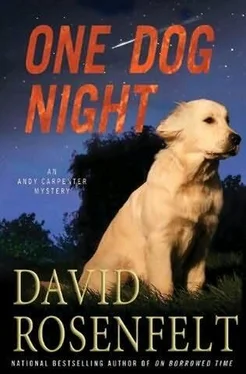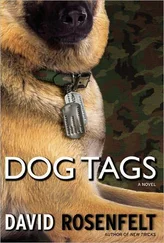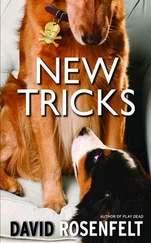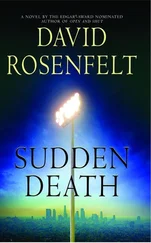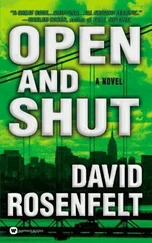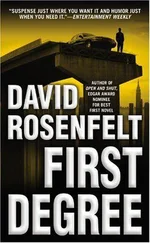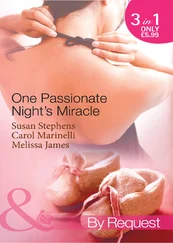“Tell him I’ll call him back,” I say, partially because we’re in the middle of a meeting, but mostly because I’m afraid to talk to him. He may have found out that I am representing Noah already. I had planned to tell him personally, but hadn’t yet summoned up the guts. I was thinking three years from Tuesday might be a good time to do it.
Edna gets back on the phone, repeats what I said, and listens for a few moments. She then holds out the phone to me again. “He said that if you don’t take the call, whatever you are doing will be the last thing you ever do.”
I nod and turn to the others in the room. “Maybe I should take this.”
They get up and start to leave, with the exception of Laurie. I pick up the phone and say, “Hey, Pete old buddy, what’s going on?”
“Tell me why,” he says.
That sounds like a song lyric to me, and I’m feverishly searching for a joke to tell about it, something to lighten the mood. But this mood probably shouldn’t be lightened, so I hit it head-on.
“Two reasons, least important first. He saved Tara’s life.”
“The second one better be a beauty,” he says.
“There is very substantial doubt in my mind that he is guilty.”
“What a surprise, a defendant who claims he is innocent.” Pete has what I would call a healthy disrespect for defense attorneys, which is no great surprise. But I’m not hearing bitterness or intense anger in his voice yet, which surprises me.
I do realize that I’ve got to be careful here; I can’t say anything that Noah told me, including his own belief that he committed the crime. It would be an obvious violation of attorney-client privilege.
“I’m talking about in my mind, Pete. What I have seen so far doesn’t add up.”
“Depends on who is doing the math. And whether they’re using lawyer-math.”
“I’ll make you a promise,” I say. “If I think he’s probably guilty when we’re done with the investigation, I won’t take it to trial.”
It’s an easy promise for me to make, since Noah doesn’t want to go to trial anyway, but I’m sure it comes as a surprise to Pete.
He doesn’t say anything for maybe twenty seconds, probably trying to figure out what to make of it. Then, “That works.”
“It does?” I ask, unable to conceal my surprise.
“But I’ll make you a promise,” he says. “If you wind up getting a guilty party off the hook, you will wish you had been in that fire yourself.”
Click.
I hang up the phone and Laurie asks, “What did he say?”
“He threatened to burn me alive.”
“That’s it?” she asks. “I’ve heard him threaten worse than that fifty times at Charlie’s. How angry was he?”
I nod. “That’s the weird part. I know Pete really well, and I don’t think he was angry at all. I think he wants me to do this.”
You would never know that twenty-six people died here.
It’s a vacant lot now, actually cleaner than some of the other vacant lots in this neighborhood. I guess when rubble includes a lot of charred bodies, the city pays more attention to the cleanup. Generally, a dead-end street like this would not get much attention, and the other vacant lots are evidence of that.
Laurie and I are on Chapman Street in Paterson, not far from Eastside High School, which is my alma mater. The area was rundown then, and is worse now. It’s late afternoon, so students are walking home, regarding us curiously but not overly so.
We like to start a case by going to the scene of the crime, but the value is certainly limited in this case. The crime itself, to say nothing of the years since, has literally wiped away the scene.
The discovery documents started coming in a few hours before we came here, and I took the time to look at the ones relating to the scene, so I’ve seen contemporaneous pictures, and read a few witness reports. I’ll go over them in far more detail later, but doing the little that I did helps me to understand what we’re looking at.
“Certainly wasn’t a random crime,” Laurie says. “They chose the house to hit.”
“How do you know that?”
“Random criminals generally pick targets that allow for an easy getaway. It’s why there are more drive-by shootings than walk-by ones.”
I know what she’s getting at, but I don’t interrupt.
She points. “This is the seventh lot in on a dead-end street. Even allowing for wanting privacy in the commission of the crime, which might therefore eliminate the corner house and maybe the one next to it, there is no reason they would have come this far down the block. Not unless they were targeting this particular house.”
“I agree, but it doesn’t help us,” I say. “The allegation is that Noah was targeting his drug suppliers, and had been to this house before to purchase his drugs. So he certainly would have bypassed the first six houses and gone after this one.”
“Do they think he drove here?”
“I don’t know what they think, but I can’t imagine he did. He had lost everything, so I doubt he had a car.”
She nods, and walks toward one of the other buildings. We stare at it, and I wait until she tells me what I’m supposed to be thinking.
“Three floors, maybe three apartments to a floor? Maybe an average of at least three people per apartment?”
I nod. “Sounds right That’s twenty-seven people, close to the number that died.”
“Fifteen buildings on the street, both sides, so maybe four hundred people living on this street. What time was the fire?”
“Just after midnight,” I say
“And it happened in the summer, right?”
“July fourteenth.”
“We need to check the weather that evening,” she says. “If it was a hot night and not raining, some people might have been outside, even at that hour. Someone should have seen something.”
“And it was a chemical fire. The perp would have had to be carrying the materials to start it. Might have made them stand out some. We’ll have to canvass the neighborhood, and identify people that have moved away.”
“The perp?” she asks, mimicking me.
I nod. “It stands for ‘perpetrator,’ which means bad guy. It’s crime talk; sorry, I sometimes lapse into my native tongue.”
I’m trying to find some humor in this, but it’s hard, because it’s not going to be fun. It’s going to be a long, painstaking investigation, essentially duplicating Pete’s failed one. And he and his colleagues had the advantage of working when the crime was fresh.
And when it’s all over, one of two things will happen. Either a guy I like will go to prison for the rest of his life, or I’ll be devoting months of my own life to something I have absolutely no desire to do. Or both.
We head back to the office, and I call Hike on the way, asking him to head down there, so that we can go over the discovery documents. It’s a difficult process; by definition it will show the odds to be heavily stacked against the defendant, which is why they arrested him in the first place.
Hike agrees to meet me at the office; he would agree to meet me in a swamp in the Everglades if he could bill by the hour. “None of my business,” he asks, “but are you getting paid for this?” He knows that I have taken a few cases in recent years with clients that had no money.
“No.”
“Let me put it another way. Am I getting paid for this?”
“Yes.”
“You cut a lot of classes in law school? Maybe the ones where they went over compensation and client billing?”
I’ve just realized that as dismal as this looked a few minutes ago, it’s actually worse. I’m doing all of this for nothing, and I’m doing it with Hike.
The most important courtroom in America, at least for financial matters, is in Delaware.
Читать дальше
